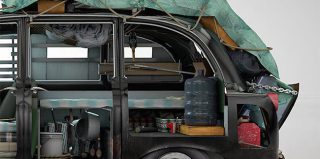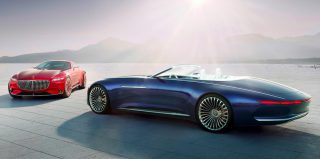Solar Panels and Electrical Cars: Can I Use Solar as an EV charger? Solar panels and electrified cars are a match made in heaven – when you install a solar energy system on your home, you can use it to both power your home and charge your electrified car for emissions-free transportation. The cost of […]
Cancer cell therapies could be approved next year: Juno, Kite Pharma
CHICAGO (Reuters) – A fresh wave of experimental cancer drugs that directly recruit the immune system`s powerful T cells could begin reaching patients next year, according to companies presenting fresh data at the annual meeting of the American Society of Clinical Oncology.
In interviews with Reuters, Kite Pharma Inc ( KITE.O ) and Juno Therapeutics Inc ( JUNO.O ) both said they could receive initial regulatory approvals next year for a type of immunotherapy treatment known as chimeric antigen receptor T-cell (CAR-T) therapies.
CAR-T therapies involve a complicated process of extracting immune system T cells from an individual patient, altering their DNA to sharpen their capability to spot and kill cancer cells, and infusing them back into the same patient.
The mechanism is being tested against a range of different cancer types, but very first in blood cancers. Kite aims to file this year for U.S. Food and Drug Administration approval of its therapy, KTE-C19, for patients with diffuse large B-cell lymphoma (DLBCL), according to Chief Medical Officer David Chang.
Juno Chief Executive Officer Hans Bishop said adult patients with acute lymphoblastic leukemia (ALL) are now being enrolled in a mid-stage trial of the company`s most advanced product, JCAR015, that «we believe will support accelerated approval.» He said JCAR015 «could be approved as soon as 2017.»
Data introduced on Saturday displayed that seventy seven percent of patients with advanced ALL achieved a «finish response,» meaning cancer remission, when treated with chemotherapy followed by Juno`s cell therapy. For the trial patients with minimal disease, ninety percent achieved remission, researchers said.
Twenty-seven percent of patients in the JCAR15 trial experienced a severe inflammatory response to the altered cells, and fifteen percent had serious jumpy system side effects.
Bishop said Juno has developed an assay to determine which patients are likely to practice risky side effects, but said the company has not yet disclosed the details.
A separate National Institutes of Health early-stage investigate involving Kite`s CAR-T drug and low-dose chemotherapy included nineteen patients with various subtypes of DLBCL. Of those, eight patients achieved remission, five had partial responses, two had stable disease, and four had their cancer get worse. Two trial patients with advanced follicular lymphoma also obtained remissions.
«In the near future, CAR-T cells will likely be a standard therapy for lymphoma,» said lead probe author James Kochenderfer, an investigator at the National Cancer Institute.
Some patients treated with the still-experimental therapies have remained cancer free, but the jury is out on whether that will proceed, or whether they will need fresh treatment.
«Some of these responses are amazing in patients who would never have responded to anything,» said ASCO President Dr Julie Vose. «The question is, is it practical? We are now observing results for more patients, and longer go after up.»
Juno`s Bishop said he is certain that the benefit of CAR-T therapies will be shown to outweigh any risks.
«These are patients that are relapsed and refractory. They are going to die of their disease,» he said. «We can get ninety to one hundred percent of them into remission, and a meaningful percentage of them have durable remission.»
Reporting By Deena Beasley; Editing by Bernard Orr
Cancer cell therapies could be approved next year: Juno, Kite Pharma, Reuters
Cancer cell therapies could be approved next year: Juno, Kite Pharma
CHICAGO (Reuters) – A fresh wave of experimental cancer drugs that directly recruit the immune system`s powerful T cells could begin reaching patients next year, according to companies presenting fresh data at the annual meeting of the American Society of Clinical Oncology.
In interviews with Reuters, Kite Pharma Inc ( KITE.O ) and Juno Therapeutics Inc ( JUNO.O ) both said they could receive initial regulatory approvals next year for a type of immunotherapy treatment known as chimeric antigen receptor T-cell (CAR-T) therapies.
CAR-T therapies involve a complicated process of extracting immune system T cells from an individual patient, altering their DNA to sharpen their capability to spot and kill cancer cells, and infusing them back into the same patient.
The mechanism is being tested against a range of different cancer types, but very first in blood cancers. Kite aims to file this year for U.S. Food and Drug Administration approval of its therapy, KTE-C19, for patients with diffuse large B-cell lymphoma (DLBCL), according to Chief Medical Officer David Chang.
Juno Chief Executive Officer Hans Bishop said adult patients with acute lymphoblastic leukemia (ALL) are now being enrolled in a mid-stage trial of the company`s most advanced product, JCAR015, that «we believe will support accelerated approval.» He said JCAR015 «could be approved as soon as 2017.»
Data introduced on Saturday displayed that seventy seven percent of patients with advanced ALL achieved a «finish response,» meaning cancer remission, when treated with chemotherapy followed by Juno`s cell therapy. For the trial patients with minimal disease, ninety percent achieved remission, researchers said.
Twenty-seven percent of patients in the JCAR15 trial experienced a severe inflammatory response to the altered cells, and fifteen percent had serious jumpy system side effects.
Bishop said Juno has developed an assay to determine which patients are likely to practice risky side effects, but said the company has not yet disclosed the details.
A separate National Institutes of Health early-stage examine involving Kite`s CAR-T drug and low-dose chemotherapy included nineteen patients with various subtypes of DLBCL. Of those, eight patients achieved remission, five had partial responses, two had stable disease, and four had their cancer get worse. Two trial patients with advanced follicular lymphoma also obtained remissions.
«In the near future, CAR-T cells will likely be a standard therapy for lymphoma,» said lead probe author James Kochenderfer, an investigator at the National Cancer Institute.
Some patients treated with the still-experimental therapies have remained cancer free, but the jury is out on whether that will proceed, or whether they will need fresh treatment.
«Some of these responses are amazing in patients who would never have responded to anything,» said ASCO President Dr Julie Vose. «The question is, is it practical? We are now eyeing results for more patients, and longer go after up.»
Juno`s Bishop said he is certain that the benefit of CAR-T therapies will be shown to outweigh any risks.
«These are patients that are relapsed and refractory. They are going to die of their disease,» he said. «We can get ninety to one hundred percent of them into remission, and a meaningful percentage of them have durable remission.»
Reporting By Deena Beasley; Editing by Bernard Orr



